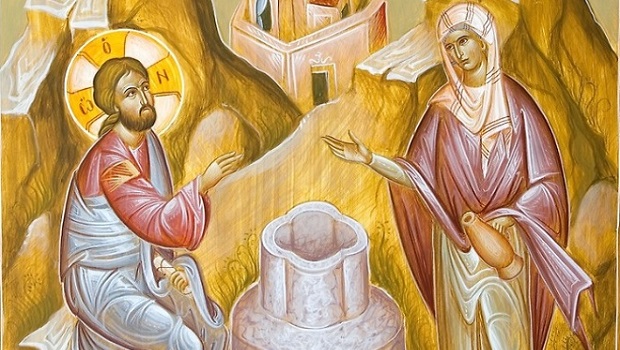Metropolitan of Pisidia Sotirios
We often hear in the Divine LIturgy and other Holy Services of the Church prayers and supplications before God that are related to “mercy,” such as: “Have mercy on us,O God, according to your great mercy…”; “ For you, O God, are merciful and love mankind … “; “By the mercy and compassion and love for man of Your Only-begotten Son…” These and many other similar expressions are heard repeatedly in our common worship, appealing to the merciful God.
This truth of God’s mercy is revealed in the Bible, where it is frequently heard that “God is rich in mercy” (Ephesians 2:4); the Lord is compassionate and merciful (Psalm 102[103]:8). And as the Apostle Peter writes, “The God and Father of our Lord Jesus Christ, who according to His abundant mercy, has begotten us again to a living hope…for an inheritance incorruptible and undefiled and that does not fade away, reserved in heaven for you” (1 Peter 1:3-4). So we remember the mercy and compassion that God has shown us in our lives, and we boldly trust in Him, bringing before Him all of our problems and needs as one Church. The Lord receives this, and responds according to His Supreme Wisdom and Love.
But the Lord also wants us to become like Him, and so let us show mercy to others, becoming merciful. That is why, in the Beatitudes, Jesus says: “Blessed are the merciful, for they shall obtain mercy” (Matthew 5:7). And the Holy Apostle Paul exhorts us: “As the elect of God, holy and beloved, put on tender mercies, kindness,humility, meekness, long suffering” (Colossians 3:12). We must have heartfelt love for other people, and a genuine compassion, like the one Jesus showed to the hungry crowds who fasted to hear Him: “And I do not want to send them away hungry, lest they faint on the way” (Matthew 15:32) as he said to His disciples, and the result of His love was the great miracle of the loaves, feeding thousands of people. The Holy Evangelists often write of this mercy of Jesus: “When Jesus went out He saw a great multitude; and He was moved with compassion for them, and healed their sick” (Matthew 14:14). When the Lord saw a widow who was burying her child, He was merciful and said to her “do not weep.” He then resurrected her child (see Luke 7:13-15).
Of course, we do not have the power of the God-man Jesus to do miracles in order to be compassionate, but that does not mean we have nothing to offer. What is important is the quality of our charity, in that we lovingly give with our whole hearts. Let us remember the poor widow praised by the Lord, when she offered the two mites to the Temple in Jerusalem (see Mark 12:42). Here is another example: There was a beggar on the side of the road in winter time, his hand outstretched for alms. A passerby sees him, and because he had no money to give him, his soul ached. The man spontaneously grabbed the beggar’s frozen hand with both hands, squeezing it and said: My dear man, I have nothing to give you at the moment, but I will pray for you that God will help you. The beggar replied: Thank you, because your hand warmed my heart! When there is compassion in our hearts, it manifests itself in the simplest ways, and blessings come.
St. Paul the Apostle emphasizes that if we have this drive to help others, then our charitable works have value: “Let each one give as he purposes in his heart, not grudgingly or of necessity; for God loves a cheerful giver” (2 Corinthians 9:7). This particular point has to be emphasized, because the mood of the heart is what matters, not the actual offering itself. It is a sad thing to give with sorrow, because instead of benefiting the soul, this loveless act actually harms the soul, because the focus is on the material things they are giving up.
Finally, let us remember the key commandment of our Lord Jesus Christ on this issue, which we all know, but forget often: “When you do a charitable deed, do not sound a trumpet before you … that have glory from men” (Matthew 6:1-2). If your alms and offers for help are done for outward appearances, I assure you that the praise or honor you receive from other people is all you will get. Do not expect a blessing or spiritual benefit from your heavenly Father (see Matthew 6:1-2).
My dear brothers and sisters, when we keep “mercy and kindness” (Colossians 3:12) in our hearts, as the Holy Apostle urges us, and offer our help and support to all those in need, we act in the best way to receive the mercy and rich blessings that God offers us, looking to Him as much as we humanly can.
St. John Chrysostom, commenting on the words of the Angel to the Centurion Cornelius of Caesarea. “Cornelius, your prayers and your alms have come up for a memorial before God” (Acts 10:4) he says, and with this let us end: “Almsgiving is the wing of prayer. If you do not make prayer a wing, it does not fly. When your soul flies, it ascends to heaven” (PG 48, 1060).
Almsgiving ascends man to heaven.
Source: pemptousia.com




0 Comments